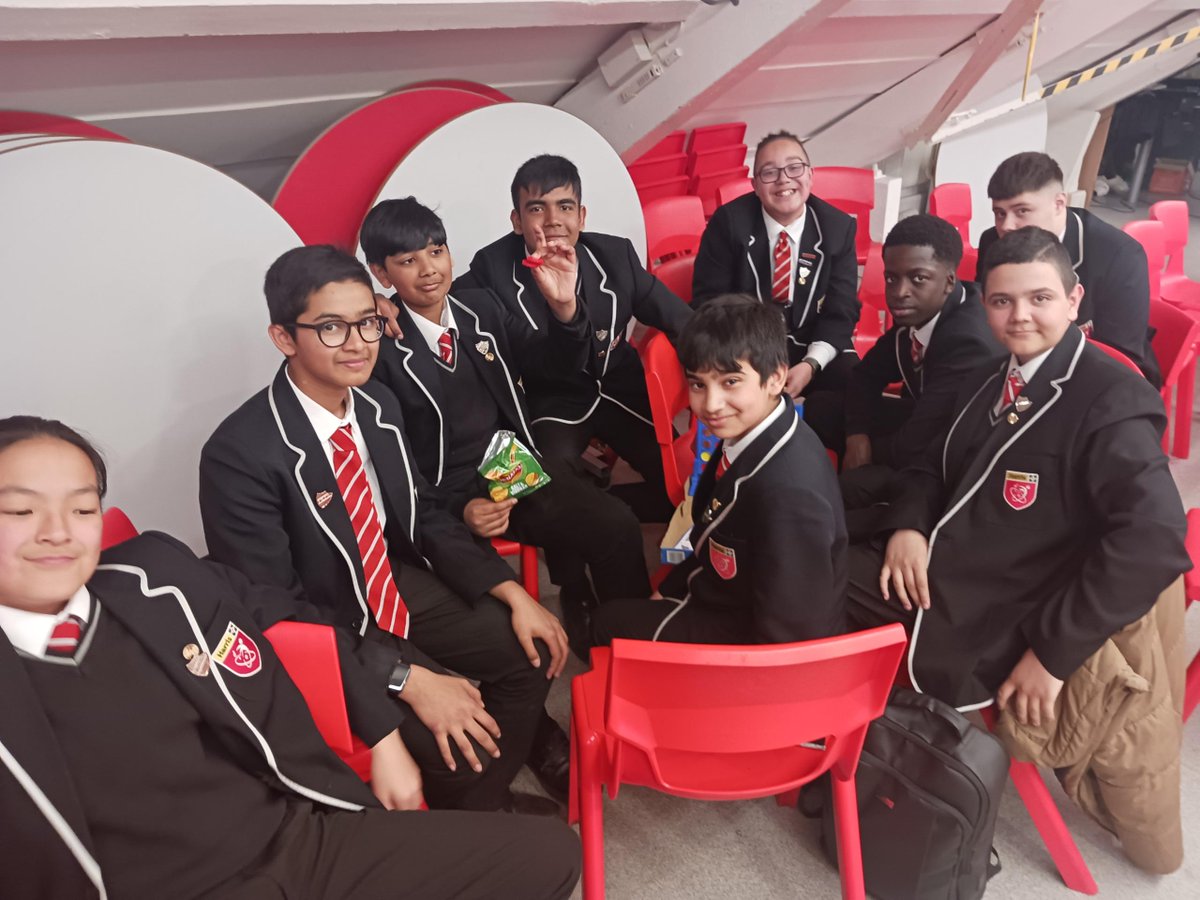Specialist Subjects
Separate Science
Why choose Triple or Separate Science? AQA’s Separate Science GCSE stands out with its rich and diverse content, ensuring students gain a nuanced understanding of each scientific realm. From the intricacies of cellular biology to the thrilling world of chemical reactions and the laws governing motion and energy, this course equips students with a profound foundation for advanced studies.
Embarking on this scientific voyage not only opens the door to awe-inspiring knowledge but also paves the way for exciting career opportunities. Future biologists, chemists, and physicists will find themselves well-prepared for university-level studies and careers in medicine, research, environmental science, engineering, and beyond.
Elevate your academic journey and prepare for a future where your understanding of the sciences can shape the world. Choose AQA Separate Science GCSE and embrace the limitless possibilities of scientific exploration!
For full course outline and assessment details please see our GCSE options brochure here.
Computer Science
Why choose Computer Science? Embark on a transformative journey into the digital realm with OCR’s GCSE in Computer Science! This options booklet unveils a world of opportunities for students seeking a dynamic and future-focused curriculum. Delve into coding, algorithms, and problem-solving with OCR’s distinct syllabus, designed to cultivate practical skills and ignite creative thinking.
Discover the unique content that sets OCR’s Computer Science GCSE apart, such as hands-on programming projects and a nuanced exploration of cutting-edge technologies. From artificial intelligence to cybersecurity, students gain a comprehensive understanding of the tech landscape.
Choosing OCR’s Computer Science GCSE not only equips you with essential skills for the digital age but also opens doors to a myriad of careers. Prepare for roles in software development, data analysis, cybersecurity, and beyond. Elevate your academic journey, embrace innovation, and position yourself for a future where technology shapes the world. Choose OCR Computer Science and unlock the potential of tomorrow’s digital landscape!
For full course outline and assessment details please see our GCSE options brochure here.
Design & Technology
Why choose Design & Technology? AQA GCSE in Design and Technology is a great choice for several reasons. First, it allows you to explore your creativity and problem-solving skills. You’ll get to work on exciting projects where you can design and make real-world products. It’s a hands-on subject that lets you bring your ideas to life!
AQA GCSE in Design and Technology offers a wide range of topics to study. You’ll learn about materials, manufacturing processes, sustainability, and how to use tools and equipment safely. This knowledge can be applied to various industries, from engineering to product design, giving you a solid foundation for future career paths.
AQA GCSE in Design and Technology encourages critical thinking and innovation. You’ll develop skills in analysing and evaluating existing products, as well as designing and prototyping your own solutions. It’s a subject that fosters creativity, problem-solving, and practical skills, which are highly valued in today’s world.
Overall, Design and Technology at the GCSE level offers a dynamic and engaging learning experience that combines creativity, technical knowledge, and practical skills. It’s a fantastic choice if you’re interested in exploring design, manufacturing, and problem-solving.
For full course outline and assessment details please see our GCSE options brochure here.
Fine Art
Why choose Fine Art? Choosing fine art to study can be a great choice for a few reasons. Firstly, it allows you to explore your creativity and express yourself through various mediums like painting, sculpture, or even photography. It’s a chance to learn new techniques and experiment with different styles. Secondly, studying fine art can help you develop critical thinking skills and a deeper understanding of visual communication.
You’ll learn how to analyse and interpret artworks, which can be super helpful for developing your own unique artistic voice. Lastly, studying fine art can open up opportunities for future careers in fields like illustration, design, or even art therapy. So, if you’re passionate about art and want to dive deeper into it, studying fine art in Year 10 could be a fantastic choice!
For full course outline and assessment details please see our GCSE options brochure here.
Latin
Why choose Latin? Latin GCSE is one of the broadest subjects that you can study at school. No where else allows you to study language, literature and history in such a varied and detailed way. About two thirds of our words come from Latin and studying the grammar and vocabulary is one of the best ways to improve your own knowledge of both English and French. Becoming an expert in Latin also sets you apart from others, demonstrating your ability to grapple with challenging passages of text.
The Roman world is the backbone of so much culture that exists around us today and by studying Latin you will understand a lot more about topics ranging from architecture and art to literature and philosophy. The GCSE course will teach you how to translate any Latin literature you choose, from mythology all the way to Latin love poetry.
Alongside the language, Latin GCSE involves looking at Roman culture and literature, building upon your knowledge of epic poetry and Roman life. The course will take you through Roman life and religion, culminating in translating Book 1 of Virgil’s Aeneid from the original Latin text, now over two thousand years old.
For full course outline and assessment details please see our GCSE options brochure here.
Classical Civilisation
Why choose Classical Civilisation? Classical Civilisation offers you the chance to delve into the wonders of the ancient world without learning the languages in detail. You will focus on the culture and civilisation of Ancient Greece and Rome, often comparing the two. The course looks at the relationship between these places and the other cultures around them and the complexities of how each element of those civilisations related to each other.
The first part of the course concerns women in the ancient world, focussing on their status and treatment in Athens, Sparta and Rome. You will learn about marriage arrangements and ceremonies, social structures and situations where women had power, both in literature and in the real world. Sources are a mixture of visual and written and you will learn how to become an expert at understanding what ancient materials can teach us.
The second part is all about Bronze Age Greece (1600-1200BC), focusing on the great cities of Mycenae, Tiryns and Troy. You will look at the archaeological evidence for these places and compare it to what we learn from Homeric texts like the Odyssey. You will embrace and enjoy the challenges of studying history from such a long time ago.
For full course outline and assessment details please see our GCSE options brochure here.
Music
Why choose Music? Music is one of the most academic yet varied and satisfying subjects anyone can choose to commit to. It is not only the ultimate test in passion and resilience, but the skills needed to excel are transferrable to other academic areas within school. It is a proven fact that many students at Russell Group Universities play in orchestras to a high level as well as sing in choirs, based on their experiences at school, where they can boast that they received a genuinely ‘rounded’ education. Employers are looking for evidence of this, so music as one of the ‘Arts’ is a strong gateway into a high-profile profession.
We hear music on the television, Internet, computer games, advertising, cinema and even in restaurants. It supports social occasions and celebrates important events, including personal, religious, political and sporting.
Those who decide to dedicate themselves to music do not just have a desire to improve and extend their musical skills and knowledge, but also believe deep within that they have a talent and aptitude for this special subject. To most, the practical element burns deepest, but there is much more to this complex journey of discovery. The mystery unfolds within!
For full course outline and assessment details please see our GCSE options brochure here.
Drama
Why choose Drama? Now I know what you’re thinking; ‘Isn’t drama just a bunch of silly games you do at primary school or at a workshop during enrichment?’ Well, Black British actor Daniel Kaluuya (Get Out, Black Panther) was one of those ordinary pupils – just like you – growing up in Camden – who did drama at secondary school and now he is an Oscar-winning powerhouse performer who recently directed his debut film for Netflix and has a current net worth of $20 million.
And yes, you may not want to pursue an acting career but let me ask you this: Do you ever plan to lead or work in a team – whether in a school sports team or at a company or your own business? Do you ever plan to present yourself to others in a favourable light – whether at an interview or media platform or work presentation? How are you with improvisation and thinking on your feet in difficult and unexpected situations with time constraints?
A GCSE in Drama can help you develop all these skills – and so much more!
Unlike other option subjects, Drama is more practical; you get to perform but equally go and see performances. Think about it! Regularly attending performances in the best of what this country and city can offer as part of your curriculum. And it’s not only performing you will do; there is also costume design (which is more than just old-fashioned gowns), as well as directing, set construction, stage management, lighting, and sound engineering. Drama is the perfect way to combine your love for science with your love for art.
Are you ready to embark upon this journey of self-discovery that will leave you unrecognisable by the time you’re finished? Choose GCSE Drama today!
For full course outline and assessment details please see our GCSE options brochure here.
Pathway Option A: Geography
Why choose Geography? There has never been a better or more important time to study geography.
Geography helps you to make sense of the world around you. Human and the physical environment is studied with a fieldwork element meaning parts of the course is hands on. The subject is becoming increasingly relevant due to the ever-growing awareness of the importance of sustainability. Whatever your passion for the world – fascination with landscapes or concerns about climate change – geography will provide you with knowledge and transferable skills that will reward you personally and advance you professionally. Ranked the second highest undergraduate degree in 2022 and the top social science in terms of graduate salary, the future will need Geography students to make sense of the changing world around us.
For full course outline and assessment details please see our GCSE options brochure here.
Pathway Option A: History
Why choose History? Choosing GCSE History offers students a captivating journey through the tapestry of human experience, providing insights into the past that are not only intellectually stimulating but also relevant to understanding the present.
At GCSE, the study of Weimar and Nazi Germany unravels the complexities of a pivotal period in the 20th century, shedding light on the rise of totalitarianism and its profound impact on the world. Delving into Early Elizabethan England invites students to explore the political intrigue, cultural renaissance, and maritime exploits that shaped the Elizabethan era, fostering a deep appreciation for the roots of modern Britain.
The Cold War option propels students into the heart of ideological conflict, nuclear brinkmanship, and espionage, fostering critical thinking and an appreciation for global geopolitics. Finally, studying Migration to Britain, 800 - present, unravels the rich tapestry of multiculturalism, exploring the myriad ways in which migration has shaped British society. This option encourages students to engage with diverse perspectives, fostering empathy and a nuanced understanding of cultural dynamics.
By choosing GCSE History, students not only acquire a rich and diverse historical knowledge but also develop invaluable skills in analysis, interpretation, and critical thinking. These skills are transferable across various disciplines and are highly sought after in both further education and the professional world. GCSE History is not just a subject; it’s a gateway to a deeper understanding of our world and an investment in a well-rounded education that prepares students for a future marked by informed citizenship and intellectual curiosity. ocial science in terms of graduate salary, the future will need Geography students to make sense of the changing world around us.
For full course outline and assessment details please see our GCSE options brochure here.























